- Overview
- MASLD and MASH
- Tests & Diagnosis
- Treatment and Prevention
- Complications
- Appointment Prep
- View Full Guide
13 Herbs and Spices That Can Help With Fatty Liver Disease



Herbs and Spices Used as Medicine
Herbs and spices have added flavor to Mexican foods for 5,000 years. And they've been used nearly as long to prevent and treat various conditions. Chamomilemay help ease anxiety and treat swelling and skin rashes. Ginger can help ease nausea. Some herbs may even help you manage your fatty liver disease. Garlic, ginger, and ginseng, for example, have been shown to help improve fat accumulation in the liver. Here's a look at some herbs and spices you might have in your kitchen and how to use them to reap the benefits.
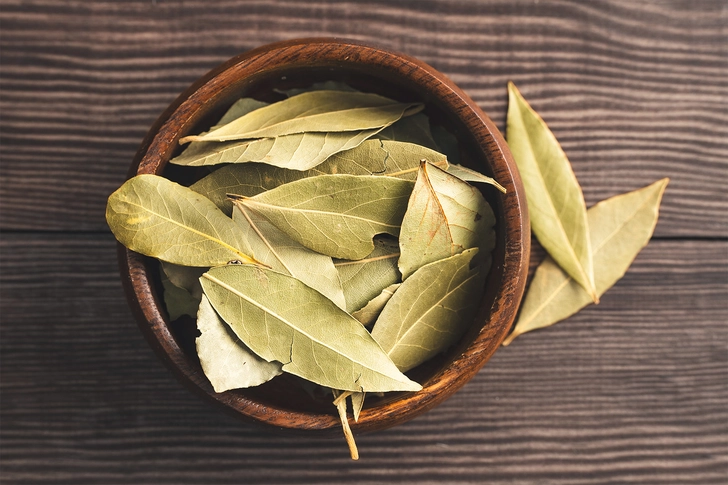
Bay Leaf
Bay leaf has a storied spot in history, being worn by Romans and Greeks. It's also well-known in traditional medicine. People have turned to it for pain and inflammation, wound healing, and easing cold symptoms. Recent research suggests that bay leaves can also reduce fat in the liver while easing inflammation. A common cooking herb in many types of cuisines, you can add bay leaves to soups, stews, or other dishes. They're typically removed before the dish they're cooked in is eaten.
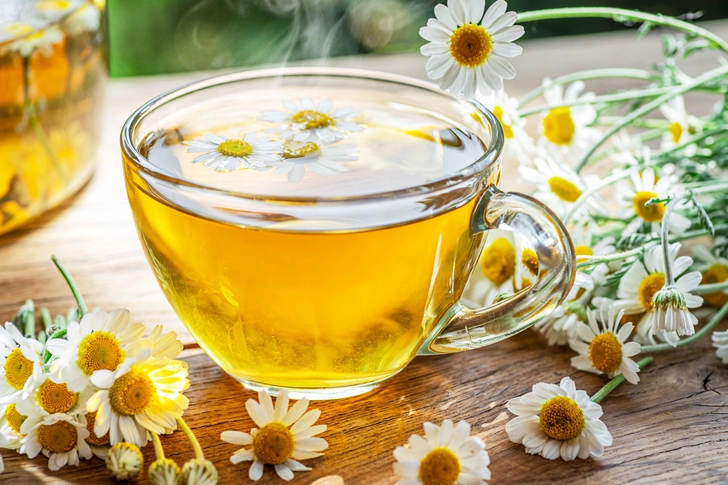
Chamomile
You may have chamomile tea in your kitchen. You might brew a cup when you feel the need to relax or soothe an upset stomach. Chamomile is well known to have a calming effect. Some studies have found that chamomile also can protect liver health. Animal research suggests that chamomile is one of several teas that may help prevent fatty liver disease.
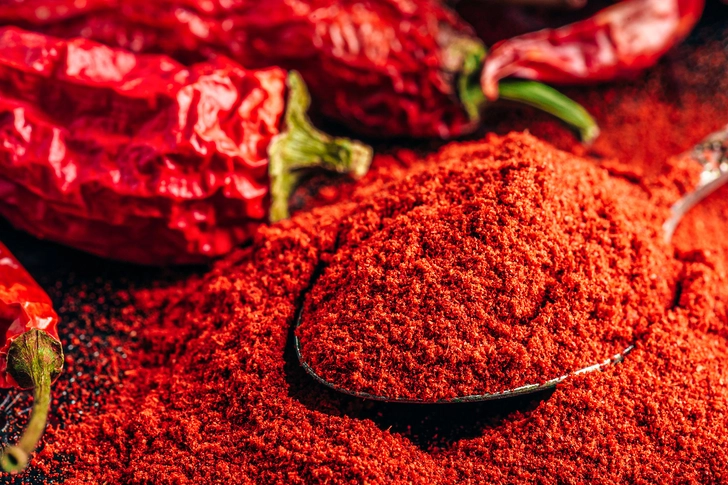
Chili Powder
Capsaicin is the main chemical in chili peppers or chili powder that makes your mouth feel hot when you eat it. It's used sometimes topically for relieving pain. Some research shows that taken orally, capsaicin can reduce fat and inflammation in the liver. Chili powder or peppers spice up many Mexican dishes. But sprinkle with care and don't touch your eyes after using it. The capsaicin may cause some burning and irritation. In very large doses, it can lead to ulcers and GI distress.
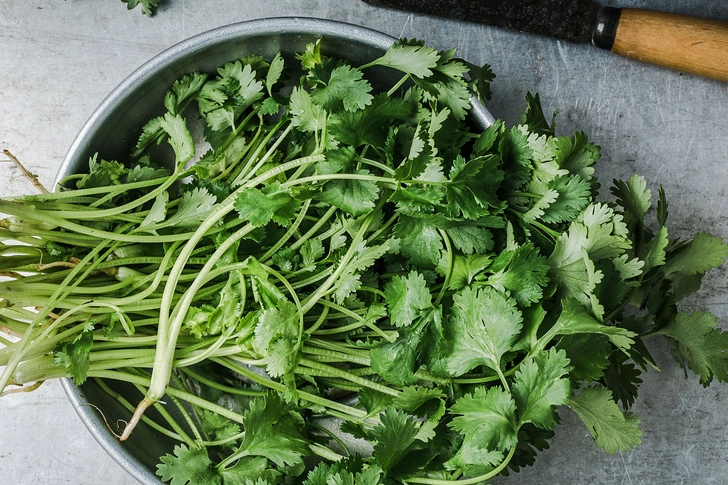
Cilantro and Coriander Seed
Cilantro refers to the leaves of the coriander plant. The aromatic leafy herb is often used in cooking, and the seeds play a role in traditional herbal medicine. Linalool, the oil in the seeds, has antioxidant and anti-inflammatory effects. In an animal study, rats that were given coriander seed oil had lower levels of fat in their livers and had healthier liver functions. More testing is needed, but there's promise that it could also help people. Enjoy a heavy dose of cilantro in salsa verde.
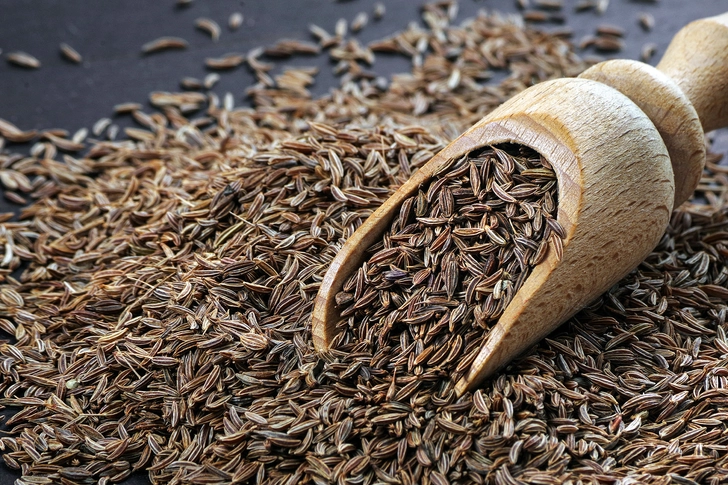
Cumin
Cumin is a spice made from a plant in the parsley family. It can be used in cooking as a seed or a powder. It's also been used to help with high cholesterol and diabetes, but research is not definitive. Some animal studies suggest that cumin powder can lower the amount of fat in the liver, as well as the stress and damage to liver cells. Some research in humans shows that cumin makes little difference on liver health.
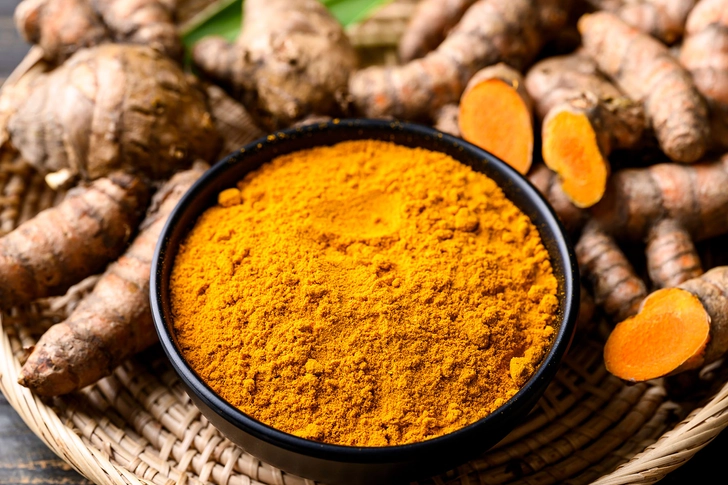
Curcumin
Different from cumin, curcumin is found in the bright yellow spice turmeric, and it has anti-inflammatory and antioxidant properties. In one study, people with fatty liver disease took 500 milligrams of curcumin a day for eight weeks. Their liver fat content decreased, as well as their weight, body mass index (BMI), and total cholesterol. Instead of supplements – which can offer doses that are too high – add turmeric to rice, taco seasoning, or golden milk. There are few side effects unless you're allergic.
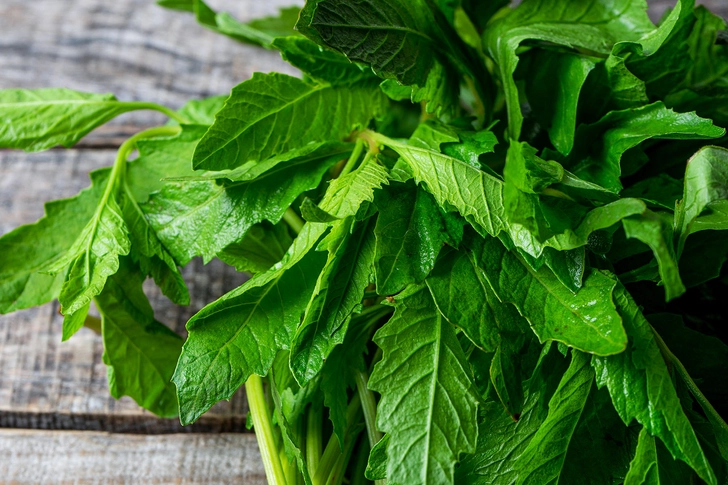
Epazote
Epazote, also known as wormseed or Mexican tea, has been noted for centuries for cooking and for its medicinal value. It has been used to fight inflammation, parasites, kidney issues, and pain. Some small studies have suggested that epazote might protect the liver and ease inflammation. You can use it fresh or dried for cooking, or drink it in a tea. You can get it as a supplement, too. It can cause vomiting and nausea, and you should avoid it if you are pregnant.

Garlic
A popular mainstay in cooking, garlic also has a long history in herbal medicine. Garlic is technically a vegetable, but it's used as an herb or spice. Studies show it helps with cholesterol, heart, and immune issues. One study found that people who ate garlic at least every day had a lower chance of getting fatty liver disease. Garlic can be taken as a supplement, too. Beyond bad breath, garlic has another side effect. It's a natural blood thinner, so don't take garlic supplements without talking to your doctor first.
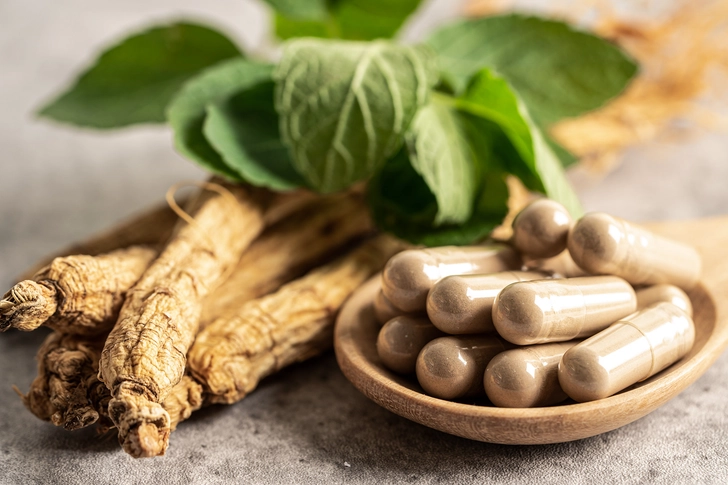
Ginseng
Ginseng is a popular herbal supplement that people say boosts energy, memory, and digestion. But ginseng root also can be used as an ingredient in both sweet and savory recipes, from smoothies and tea to soups and taquitos. Some research has found that ginseng can help reduce fat buildup in the liver and help the liver function better. Don't take ginseng if you have diabetes or if you take certain meds, including blood thinners, corticosteroids, and estrogen.
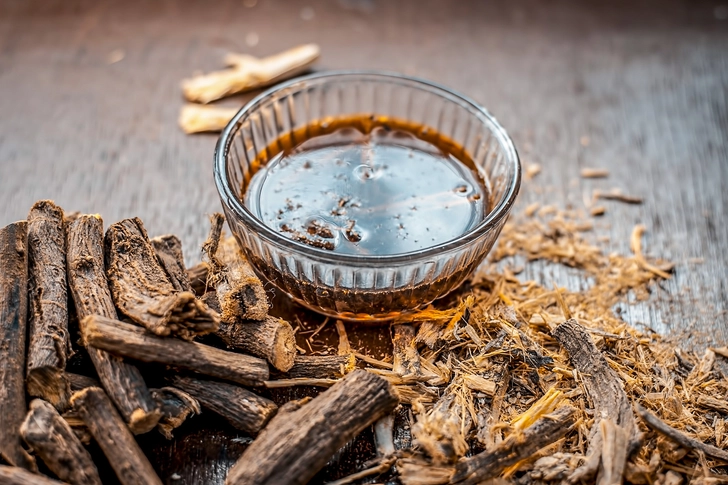
Licorice
Not just key in candy, licorice root is commonly used to combat liver disease. In one study, women with fatty liver disease took 1,000 milligrams daily of licorice extract. Their liver health was better after 12 weeks than women who followed healthy lifestyle changes, including weight loss. Taking large amounts of licorice root can lead to serious side effects like cardiac arrest and an irregular heartbeat. And it can be dangerous during pregnancy, increasing the risk of preterm delivery.
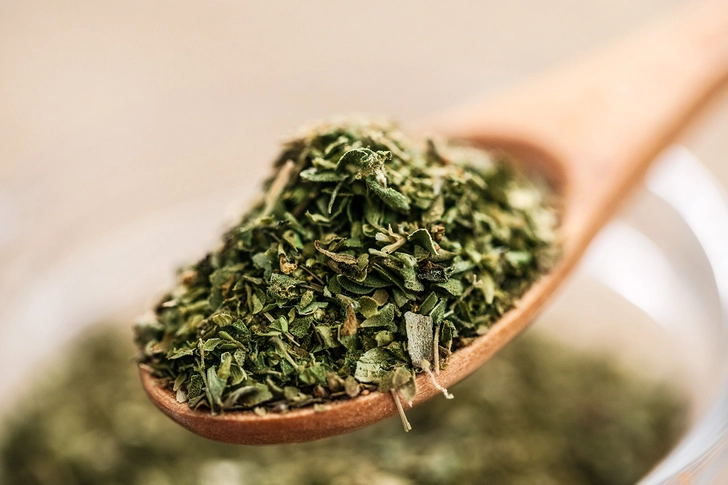
Marjoram and Oregano
Marjoram and oregano are two closely related herbs. Popular in several types of cuisines, they're also used medicinally. The herbs have been used to treat colds and coughs, and to ease stomach upset and promote wound healing. In animal studies, oregano and marjoram have been found to protect the liver by having an antioxidant effect. And they also reduced abnormalities in the liver by decreasing the amount of liver fat. Marjoram and oregano can be used in cooking to season foods or consumed as an herbal tea or supplement.
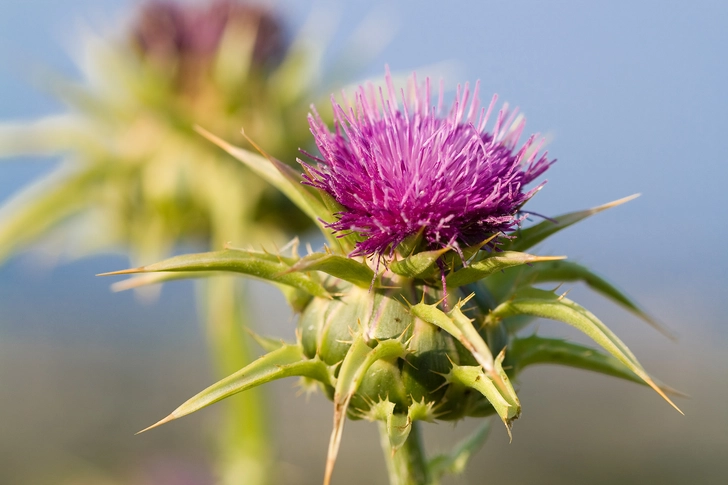
Milk Thistle
Prickly milk thistle is often suggested to treat liver diseases, including hepatitis and cirrhosis. In a research review, silymarin – an extract from milk thistle – was linked to fewer liver-related deaths. In one study, eight weeks of silymarin was linked to better liver function in patients with fatty liver disease. Milk thistle seeds, or the powder made from grinding them, can be used in recipes for soups, salads, or teas. Milk thistle supplements may cause digestive issues like nausea, vomiting, or constipation. It may help to take it with food.

Thyme
A favorite in the kitchen, this popular herb is also popular for boosting immunity, promoting healing, and easing inflammation. Some research has shown that these anti-inflammatory properties may also encourage liver health. Researchers tout thyme's ability to stop liver damage as having potential for managing fatty liver disease, but more research is needed. Thyme is typically used to season savory foods.
Photo Credits:
1) DigitalVision/Getty Images
2) iStock/Getty Images
3) iStock/Getty Images
4) iStock/Getty Images
5) Moment/Getty Images
6) iStock/Getty Images
7) iStock/Getty Images
8) iStock/Getty Images
9) iStock/Getty Images
10) iStock/Getty Images
11) iStock/Getty Images
12) iStock/Getty Images
13) E+/Getty Images
14) DigitalVision/Getty Images
SOURCES:
University of Rochester Medical Center: "A Guide to Common Medicinal Herbs," "Ginseng."
Cleveland Clinic: "Steatotic (Fatty) Liver Disease," "Is Milk Thistle Your Next Go-To Supplement?" "Milk Thistle Capsules or Tablets."
Journal of Traditional and Complementary Medicine: "Beneficial effects of Chinese herbs in the treatment of fatty liver diseases."
Hepatology Forum: "Evidence-based herbal treatments in liver diseases."
Johns Hopkins Medicine: "Turmeric Benefits."
Journal of Cell Biochemistry: "Curcuminoids plus piperine improve nonalcoholic fatty liver disease: A clinical trial."
Pharmacy Practice: "The impact of turmeric or its curcumin extract on nonalcoholic fatty liver disease: a systematic review of clinical trials."
Pharmacological Research: " Natural products in licorice for the therapy of liver diseases: Progress and future opportunities
Phytotherapy Research: "Effects of licorice root supplementation on liver enzymes, hepatic steatosis, metabolic and oxidative stress parameters in women with nonalcoholic fatty liver disease: A randomized double-blind clinical trial."
National Center for Complementary and Integrative Health: "Licorice Root," "Garlic."
Journal of Ginseng Research: "Pharmacological potential of ginseng and ginsenosides in nonalcoholic fatty liver disease and nonalcoholic steatohepatitis."
Evidence-Based Complementary and Alternative Medicine: "Pharmacological Effects of Ginseng on Liver Functions and Diseases: A Minireview."
Food Research: "The effect of coriander seed extract on reducing triacylglycerol synthesis and lipid droplets in the liver of obese rats induced by high-fat diet."
Biomedicine and Pharmacotherapy: "Supplementation of cumin seed powder prevents oxidative stress, hyperlipidemia and non-alcoholic fatty liver in high fat diet fed rats."
Advanced Biomedical Research: "Effects of cumin on nonalcoholic steatohepatitis: A double blind, randomised, controlled trial."
Frontiers in Pharmacology: "Capsaicin: a spicy way in liver disease."
Animal Cells and Systems: "Capsaicin suppresses liver fat accumulation in high-fat diet-induced NAFLD mice."
StatPearls: "Capsaicin."
European Journal of Endocrinology: "Association between dietary raw garlic intake and newly diagnosed nonalcoholic fatty liver disease: a population-based study."
Maine Organic Farmers and Gardeners: "Epazote."
University of Texas at El Paso: "Wormseed, Mexican Tea."
Molecular Medicine Reports: "Chamomile: A herbal medicine of the past with bright future."
Food Science and Nutrition: "Effects of several tea extracts on nonalcoholic fatty liver disease in mice fed with a high-fat diet," "Ethyl acetate fraction of oregano seed protects non‐alcoholic fatty liver in high‐fat diet‐induced obese mice through modulation of Srebp‐1c."
Food and Nutrition Research: "Effect of water extract of bay laurel (Laurus nobilis L.) on non-alcoholic fatty liver disease (NAFLD)."
Medicinal Plants of South Asia: "Bay leaf."
Egyptian Journal of Nutrition and Health: "Hepatoprotective effects of marjoram (Origanum marjorana L.) on oxidative stress against carbon-tetrachloride-induced toxicity in rats."
Mayo Clinic: "Milk thistle."
PubChem, National Library of Medicine: "Capsaicin."
Journal of Ethnopharmacology: "Nephroprotective plant species used in traditional Mayan Medicine for renal-associated diseases."
PLOS One: "Antidiabetic Effects of Chamomile Flowers Extract in Obese Mice through Transcriptional Stimulation of Nutrient Sensors of the Peroxisome Proliferator-Activated Receptor (PPAR) Family."
Bezmialem Science: "Phytotherapy in Liver Diseases."
Journal of Herbal Medicine: "Oregano and/or marjoram: Traditional oil production and ethnomedical utilization of Origanum species in southern Turkey."
Nutrients: "A Focused Insight into Thyme: Biological, Chemical, and Therapeutic Properties of an Indigenous Mediterranean Herb."